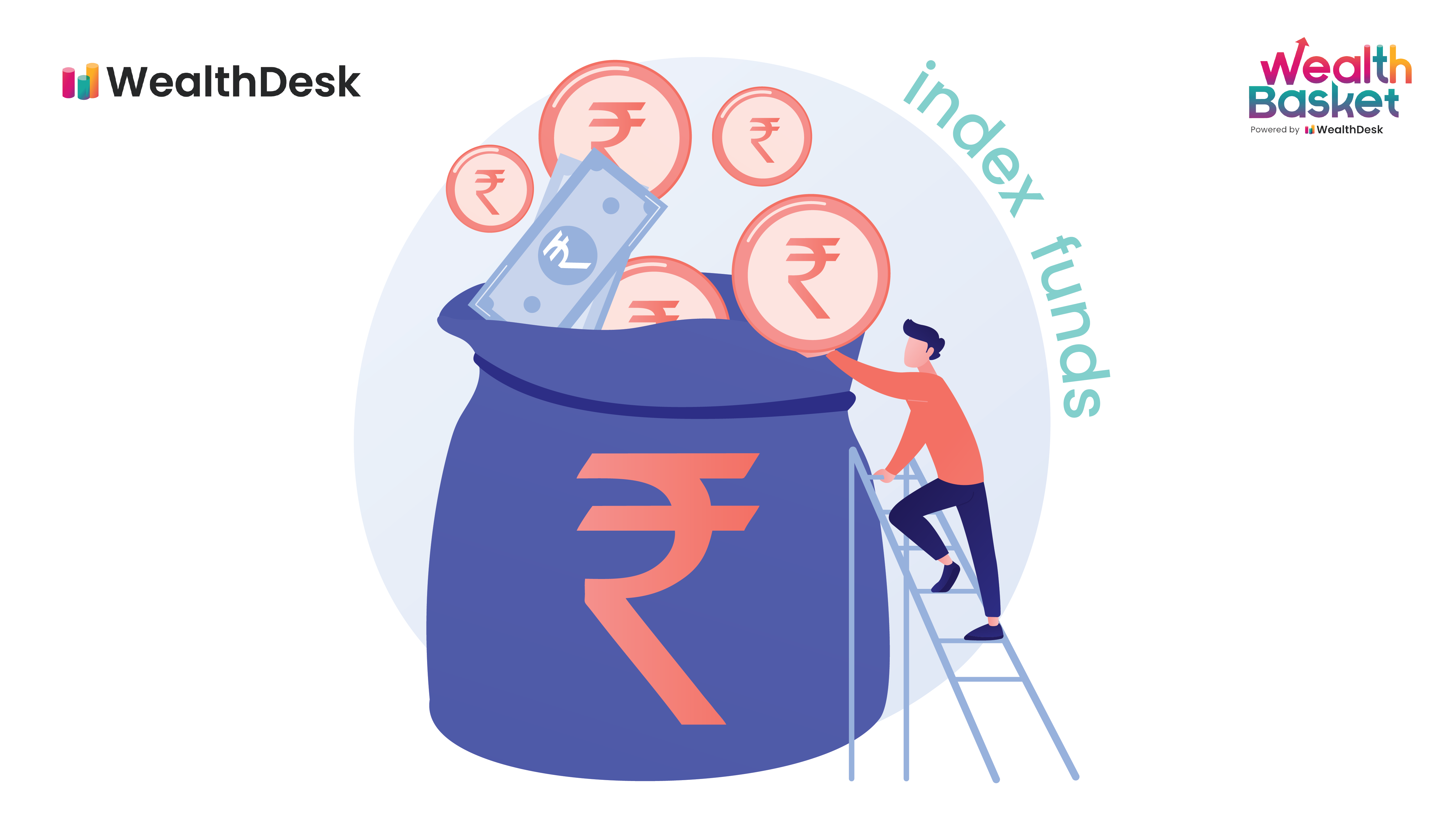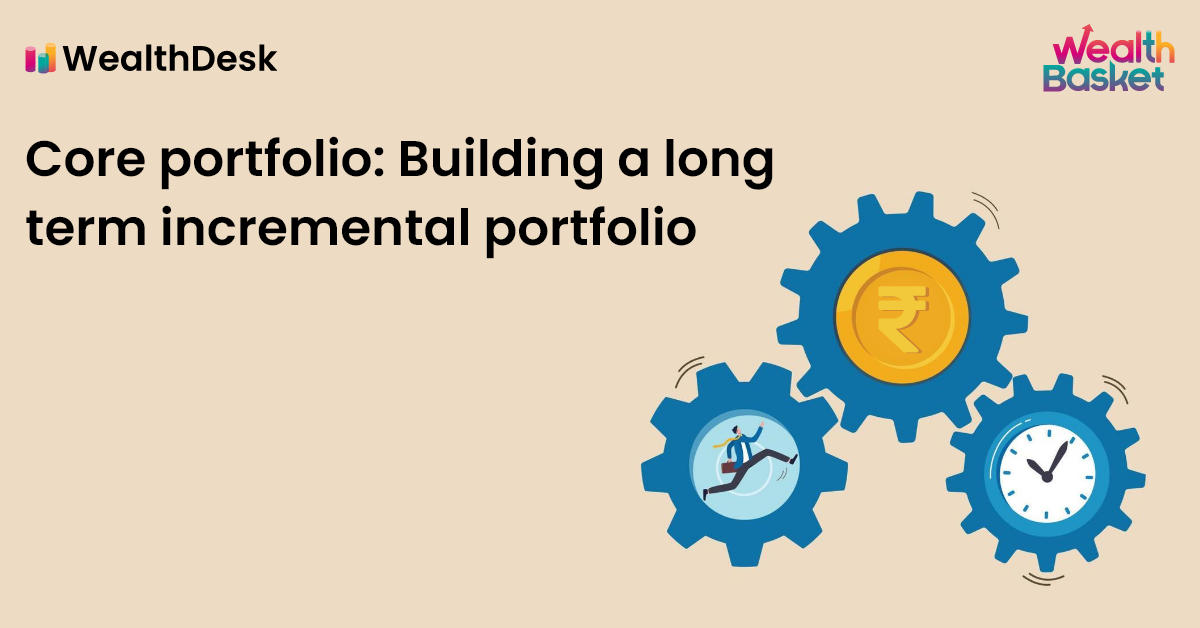What is an Index Fund?
Index funds are a type of mutual fund scheme in which at least 95% of the portfolio is invested in the securities of a particular index. Index funds track an index, like the Nifty 50, S&P Sensex, etc., and invest in the securities that the index invests in. There is no active fund management as the portfolio mirrors the benchmark index. So, index funds in India are also called passively managed mutual fund schemes.
Now that you have understood the basic concept of index funds in India, let’s come to the main question, are they the best investments over the long term?
There are various benefits of investing in index funds that work in their favour. Some of these benefits which make index funds the best long-term investments are as follows:
- Benchmark-linked returns
- Cost-effective
- Diversified portfolio
- Suitable for new investors
What are the benefits of index funds?
Benchmark-linked returns
Since index funds mirror a particular benchmark, their returns also match the returns of the same. Actively managed mutual fund schemes, on the other hand, try to beat the benchmark returns, but such an endeavor might not hold consistently. In the last year itself, i.e., 2020, many actively managed mutual fund schemes have fallen short of their benchmark indices in terms of returns, as reported by the SPIVA India Scorecard. Have a look:
| Type of mutual fund scheme | Comparison benchmark index | Average equal-weighted fund return | Return from the index |
| Large-cap equity funds | S & P BSE 100 | 32.46% | 36.48% |
| Mid and small-cap funds | S & P BSE 400 MidSmallCap Index | 42.27% | 42.51% |
| ELSS schemes | S & P BSE 200 | 33.96% | 36.59% |
| Government bonds | S & P BSE India Government Bond Index | 3.06% | 3.81% |
| Composite bonds | S & P BSE India Bond Index | 3.14% | 3.91% |
As you can see, the benchmark returns exceeded the average returns of the actively managed mutual fund schemes. Index funds deliver benchmark matching returns (adjusted for tracking error and TER). So, investing in index funds can prove profitable over the long term.
Cost-Effective
Index fund investments in India have meager expenses associated with them. However, since the fund is managed passively, fund management charges are minimal. Thus, the costs are low and don’t eat into the returns generated by the portfolio, making them cost-effective schemes.
Diversified Investment Portfolio
Benchmark indices invest in 50 or more stocks across industries and sectors. Since index funds also invest in the stocks comprising the benchmark index, you benefit from a diversified portfolio by investing in index funds. Moreover, your investment is split across large-cap, mid-cap, and small-cap stocks belonging to companies in different industries. So, the volatility risks are mitigated under these long-term funds while the return generating potential is enhanced.
Suitable for New Investors
Investors who are new to the world of equity investing find investing in index funds preferable, as they don’t have to pick the best stocks as index funds do it for them. Moreover, the benchmark matching returns, low-cost structure, and diversified portfolio make investing in index funds suitable for new investors looking for long-term investment options.
Therefore, index funds in India can be one of the best investments over the long term.
What are the Drawbacks of Index Funds?
While index funds are beneficial long-term funds, there are some drawbacks too. Have a look:
- When the market is rallying, actively managed schemes can give benchmark beating returns, a feature that is absent in index funds.
- In a downtrend, you can incur considerable losses under index funds. This is because the fund tracks the index, and there is no leeway to change the portfolio allocation to reduce risks. So, even if there are hedging opportunities, such opportunities cannot be utilised due to passive fund management.
- You do not control the stocks in the portfolio. It is impossible for you to invest as per your investment strategy. The underlying index solely decides the portfolio allocation.
How should you approach Index Funds?
While index funds are good, they might not be the best long-term investment avenue. So do not depend on them entirely. Instead, you should diversify your portfolio with other investments, such as actively managed investments that can be modified as per your strategy. Another alternative to investing in an index is an Exchange Traded Fund (ETF) which functions as an index fund but is easily tradable on the stock exchange. So, with ETFs, you get the benefit of trading.
Alternatively, you can choose a basket of stocks and ETFs matching your investment strategy, which enjoys hands-on professional management. WealthBaskets provides readymade baskets that allow you to invest in a portfolio of handpicked stocks and ETFs. Moreover, there are different WealthBaskets to choose from as per your investment strategy.
How to Pick Index Funds?
When you are choosing index funds, it is vital to know the market or asset you want exposure to. The next step would be recognizing a suitable index for the market or asset you chose. Once that is done all you need to do is browse through the various options available.
Broadly speaking, there are two main categories: mutual funds and ETFs (exchange-traded funds). Mutual funds are aimed at accessibility as an investor may not need a Demat account to invest in them. However, they do have entry and exit costs. Moreover, they can only be sold back to the issuer (mutual fund managing firm), that too after market hours. This makes mutual funds very illiquid.
ETFs are an alternative for investors who want more liquidity. They are freely traded on the exchange market.
The Bottom line
Index funds are profitable avenues, but you need diversification in your portfolio. Understand the pros and cons of these funds and then make an informed choice.
FAQs
You should compare the different funds based on their historic returns and consistency. The fund which offers the highest and the most consistent returns would be the best for the long term. Comparing and selecting is the best way to invest in index funds.
If you are looking for benchmark matching returns, investing in index funds makes sense. There is no right or wrong time for investing in index funds. You can invest any time, and if you have a long-term perspective, you will get attractive returns.
Yes, over the long-term period, index funds can give you attractive returns and smoothen out the volatility risks.
Index funds match the returns generated by their benchmark index. So, if the benchmark index is delivering good returns, the fund would be profitable.


















